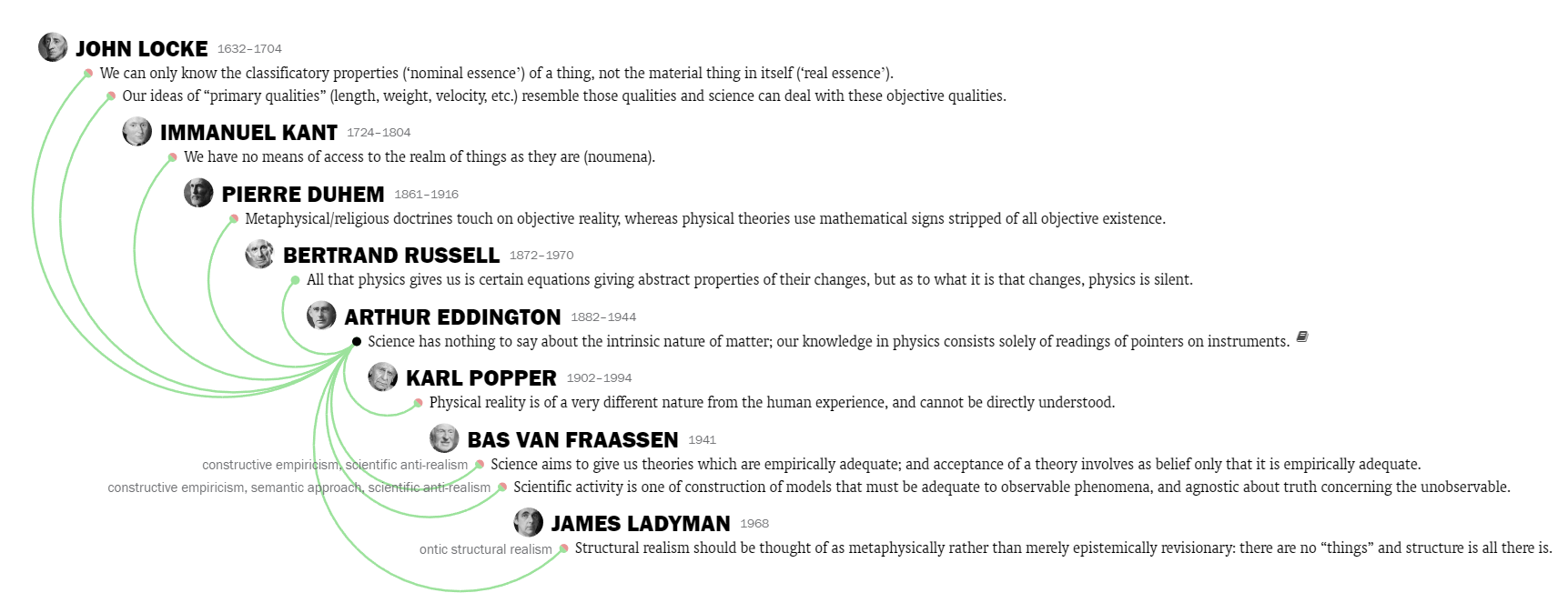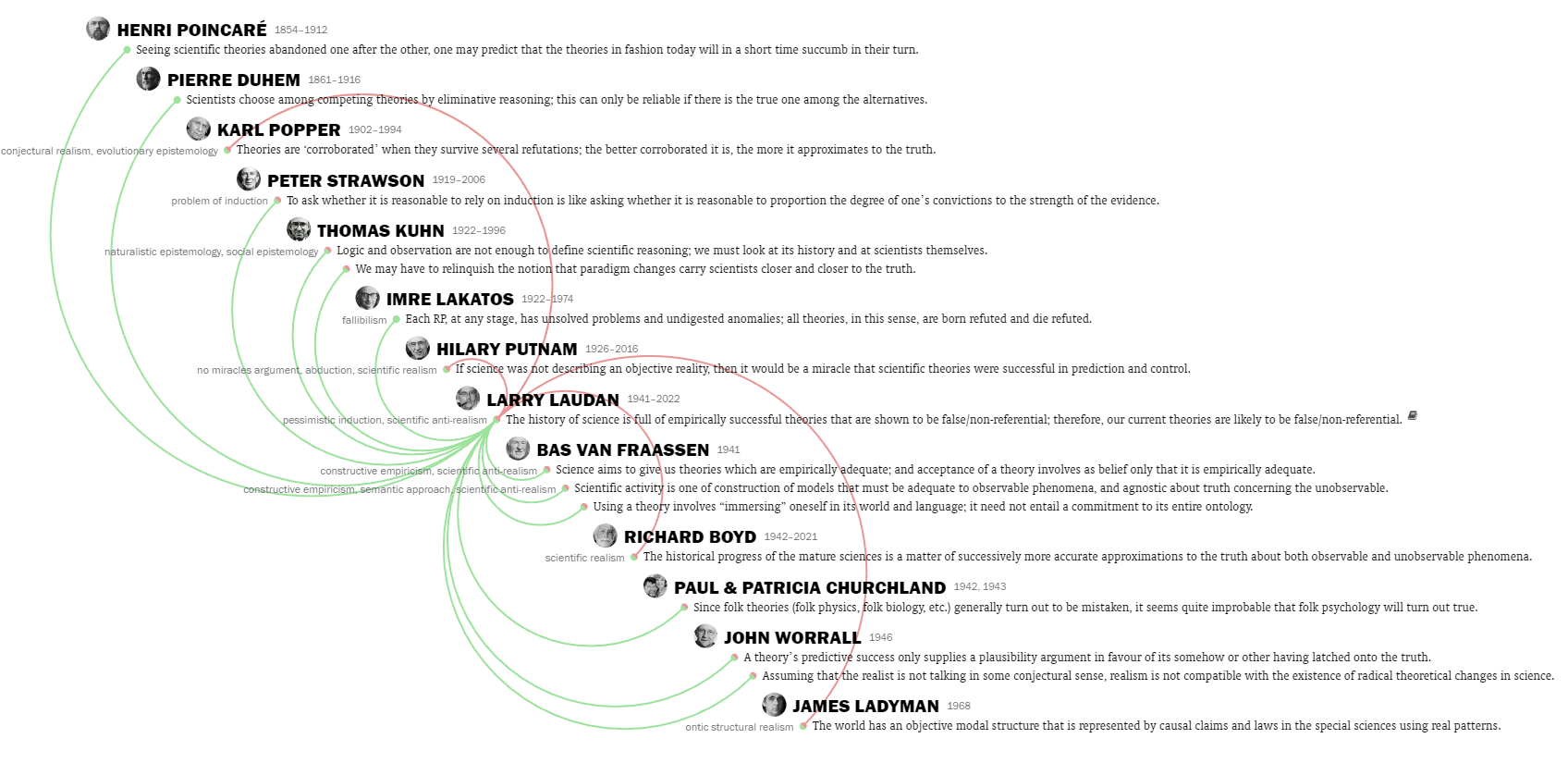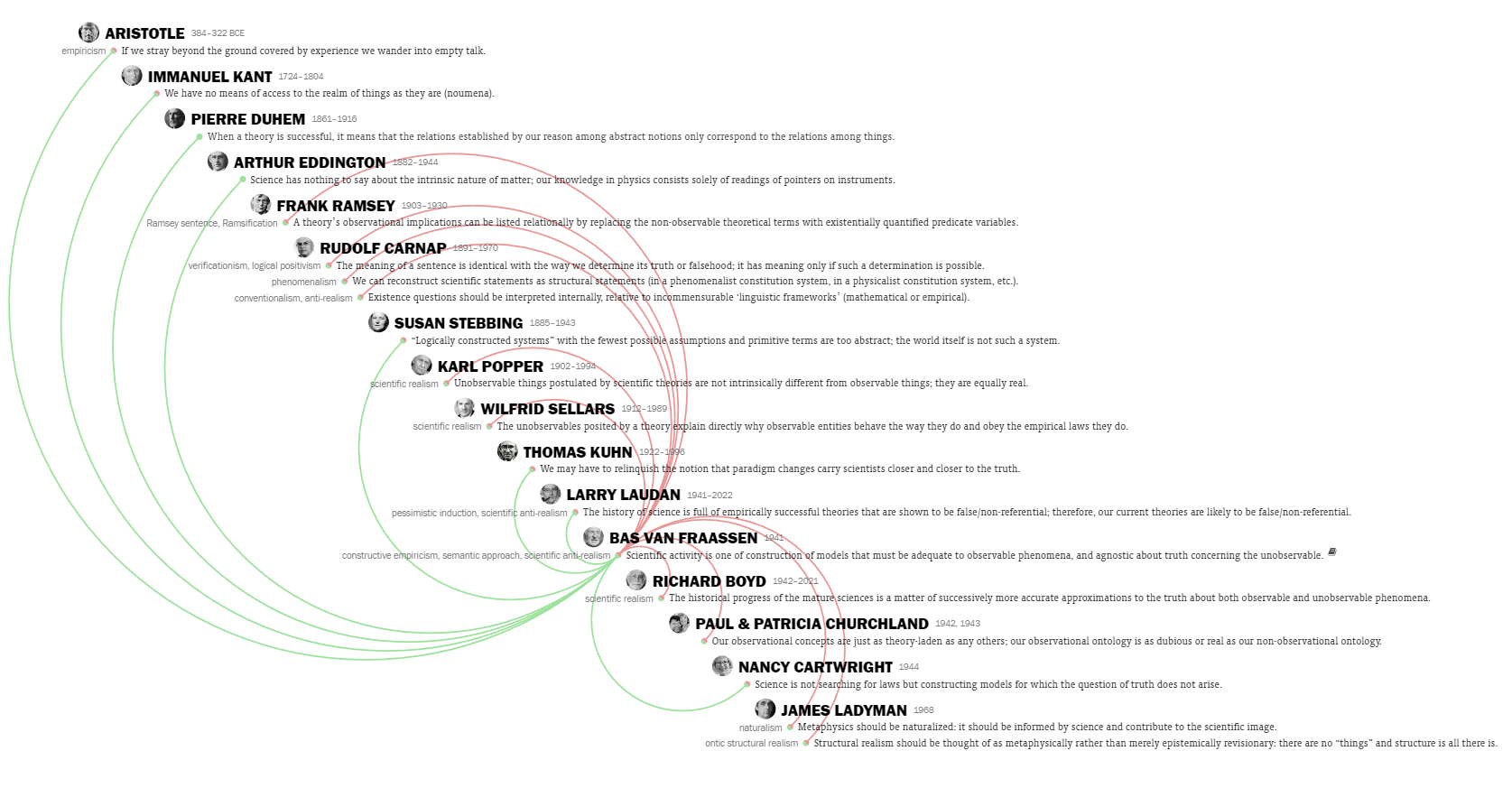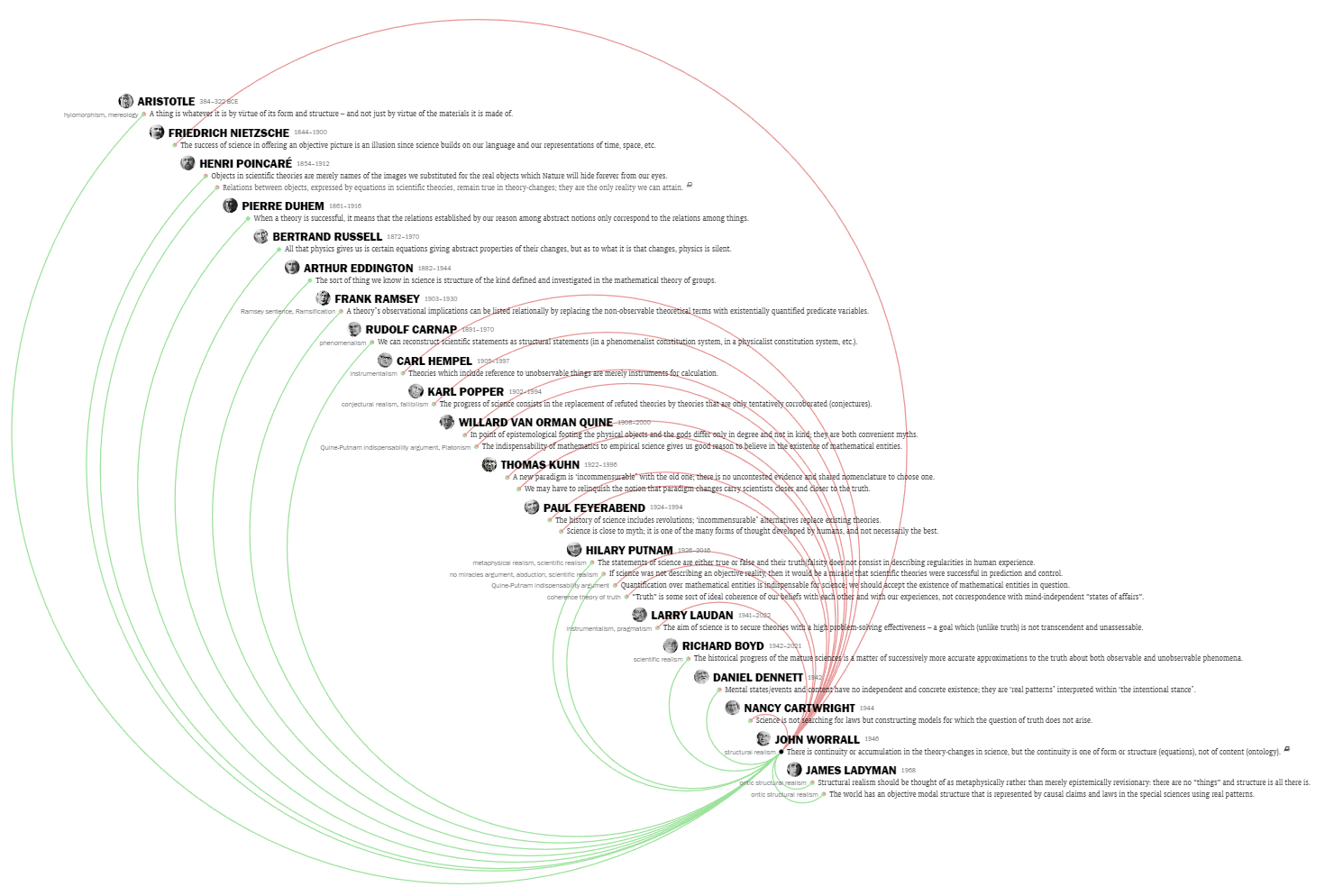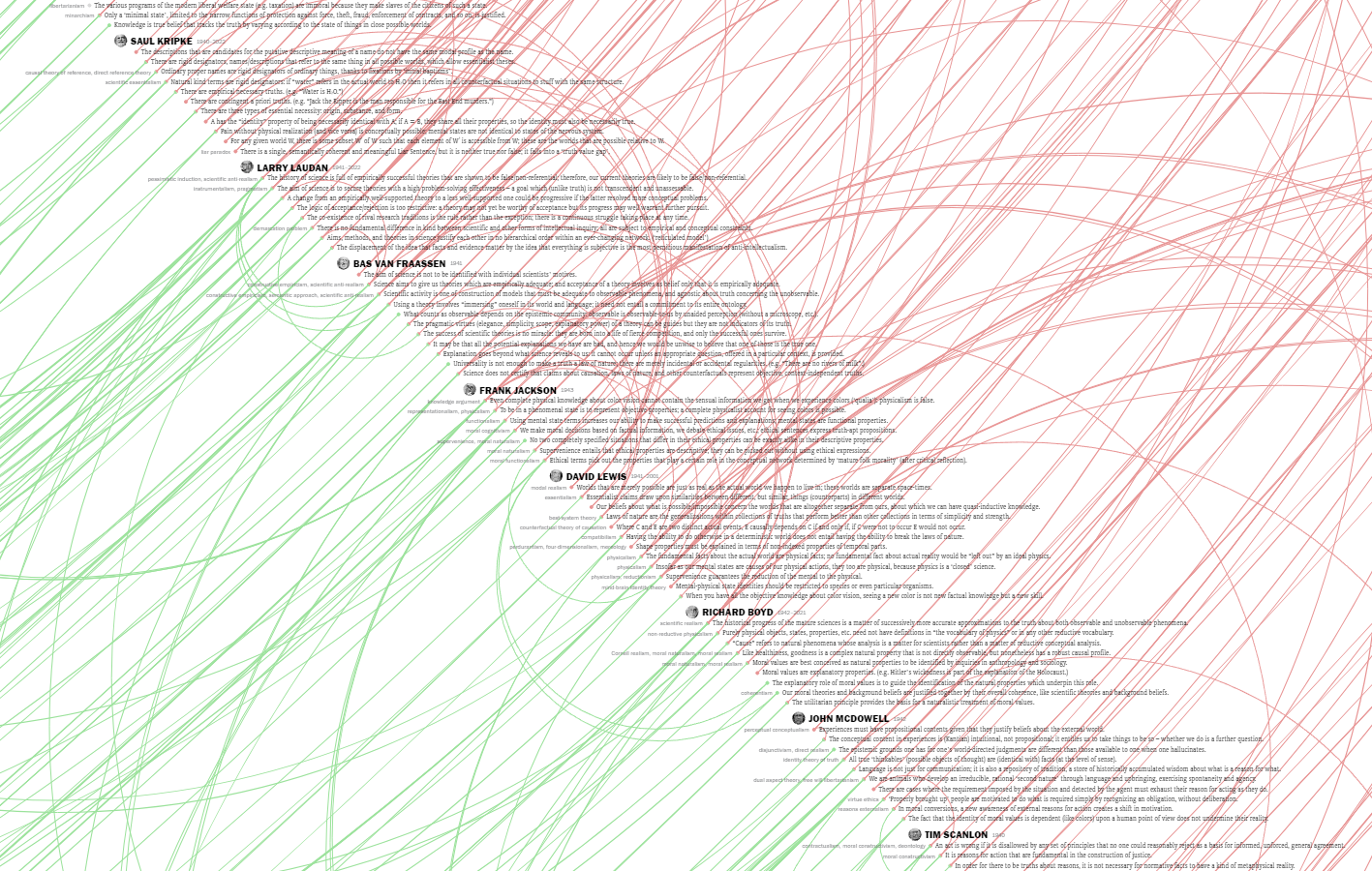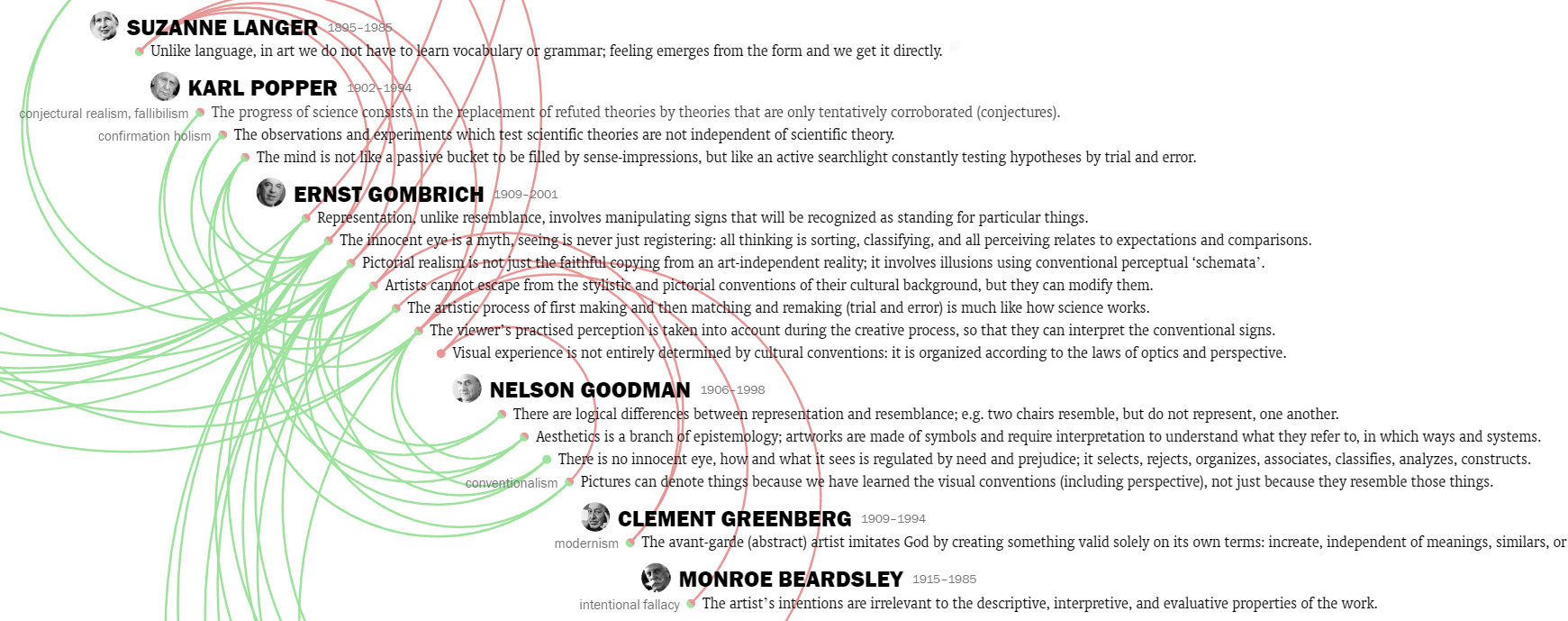Poincaré, Eddington, Gombrich, Laudan, Van Fraassen, Worrall, Ladyman Added; Anselm, Duhem, Grice, Williams, Kripke, Lewis, Boyd, and Others Updated
It’s been a very productive period since my last summary post in December; I’ve done so much work in two months that I decided to publish the first content update post of 2024 before continuing. In summary:
- I’ve added Henri Poincaré, Arthur Eddington, Ernst Gombrich, Larry Laudan, Bas van Fraassen, John Worrall, and James Ladyman.
- I’ve made substantive revisions with lots of new/edited sentences for Saint Anselm (6), Pierre Duhem (7), and Paul Grice (5).
- I’ve added/edited sentences for Plato, Saint Augustine, Thomas Aquinas (2), David Hume, Jeremy Bentham, Charles Darwin, Charles Sanders Peirce, Bertrand Russell, Karl Popper (2), Nelson Goodman, Donald Davidson, Paul Feyerabend, Hilary Putnam, Bernard Williams (4), Saul Kripke (5), David Lewis (3), John McDowell (2), Richard Boyd (3), Daniel Dennett, Paul Churchland (2), and Peter Singer (2).
- I’ve drawn 895 new connections, making a total of 6089 (3657 positive, 2432 negative) connections between 1836 sentences from 175 philosophers.
Highlights
For the past months I’ve mostly concentrated on philosophy of science – around the issue of realism – and worked on many contemporary philosophers. This was something I’ve been meaning to do for a long time. There are seven new people so I won’t crowd here with screenshots showing all their sentences this time, but instead proceed with a topic-based overview for you, including the Russell-Eddington position about the silence of science regarding intrinsic nature:
… the debates around Laudan’s pessimistic (meta)induction (with a forerunner in Poincaré) and Putnam’s no-miracles argument:
… Van Fraassen’s solutions in his constructive empiricism and semantic approach (and Paul Churchland’s objection):
and the (epistemic and ontic) structural realisms of Worrall and Ladyman, building on the Russell-Eddington view and extending all the way to Poincaré and Duhem:
In addition, I’m happy that this period/region of 20th-century analytic philosophy shown below has improved in this update, with Kripke (5 new/edited sentences), Laudan (newcomer), Van Fraassen (newcomer), Lewis (3), Boyd (3), and McDowell (2):
I intend to work more on these people this year.
At some point I needed a short break from scientific realism readings and I thought of using my old notes on Gombrich to add him – a curious choice for a break, I figured later, because his theory of art is heavily influenced by Popper. I also did some more reading on his disagreement with Goodman on the conventionality of perspective in visual representation:
I’ve also spent some time on other topics, such as the variations of the concepts of (original) sin, evil, and free will in St Augustine, St Anselm and St Aquinas (more work to be done here):
The similarities between Anselm’s and Kant’s accounts of free will are also intriguing.
Bentham’s famous “Can they suffer?” quote is frequently used in animal welfare debates. Actually that phrase comes after a utilitarian argument – which I’ve recently added, along with a related idea by Peter Singer – defending the killing of animals for food or to protect human life, without making them suffer. “We are the better for it, and they are never the worse,” says Bentham, because:
“They have none of those long-protracted anticipations of future misery which we have. The death they suffer in our hands commonly is, and always may be, a speedier, and by that means a less painful one, than that which would await them in the inevitable course of nature.” (An Introduction to the Principles of Morals and Legislation)
I also realized I didn’t have a sentence representing the concept of group selection, an important dimension of the units of selection literature in philosophy of biology – what better than using Darwin’s own formulation from The Descent of Men to introduce it:
I still have many important figures to add in the philosophy of science literature and I intend to continue with them after publishing this post, starting with Mach and Reichenbach. (I also started working on Latour by reading his Laboratory Life.)
A final general remark: Now that I roughly have the essentials in place – in terms of both functionality and content – after years of work, I observe that I can better concentrate on subdisciplines and specific topics. From now on, I’ll have more time and energy to work on figures/debates from recent times and connect them to the past as well as to each other. Seeing history of philosophy continuous with its current state, this was my intention all along, hoping this project will be able to give structured overviews of the recent debates along with their historical backgrounds. (In this regard I sometimes think “History of Philosophy” could be a misnomer for this project – should I change it?) That’s what I tried to do with Laudan, Van Fraassen, Worrall, and Ladyman in this update; and Van Inwagen, Plantinga, Korsgaard, MacIntyre, Block, Kim, Millikan, Kane, Haraway, and Badiou are just some of the names that are currently at the top of my to-add list with 100+ people.
The usual reminder: You can browse the whole thing here.
Subscribe to Updates
Follow & Support
RECENT UPDATES
- New Force-Directed Graph with Philosophers as Nodes
- Zeno of Citium, Epictetus, Marcus Aurelius, Skinner, Plantinga, Block, Strawson, and Oppy Added; Hume, Rousseau, Brentano, Husserl, Wittgenstein, and Others Updated
- Poincaré, Eddington, Gombrich, Laudan, Van Fraassen, Worrall, Ladyman Added; Anselm, Duhem, Grice, Williams, Kripke, Lewis, Boyd, and Others Updated
- ‘Basics’ Filter for the Uninitiated
- Reid, Barthes, Habermas, Varela Added; Leibniz, Kant, Ramsey, Sartre, Beauvoir, Foot, Clark, and Others Updated
- Dynamic URLs

